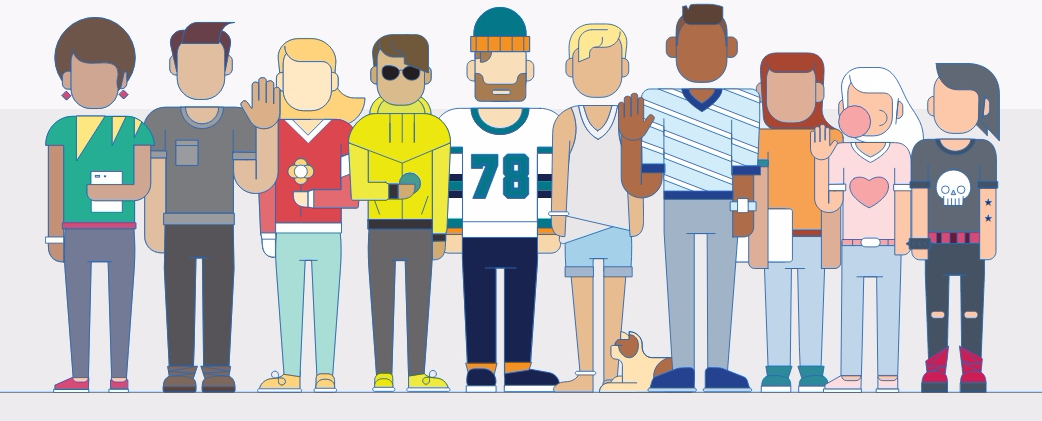How often do you see a doctor? If you’re like me, probably not often enough. But each time I see a doctor for a physical, there’s some technological advancement that I didn’t notice before. Years ago, I remember having to fill out-patient information with pen and paper. These days, I can be using a tablet to tap my way around “filling out” new patient forms. Technology has significantly impacted health care. Some would say for the worse, while others would say for the better. An interesting article I read recently from Dr. Atul Gawande about why doctors hate computers argues both sides.
Change is happening right now
Regardless of the side you’re on, the change is happening nonetheless. And there’s a shortage of health-care IT professionals to help expedite this change, especially in Big Data and analytics. I wanted to talk to people in health care to help understand what skills health-care IT professionals need to develop.
To help with this, I was able to get on the phone with Keith Olenik of The Olenik Consulting Group LLC to talk about some of this. Keith is a 30-year veteran of the health-care industry. His background is not so much on the technology side as it is on the health information management side. He largely focuses on the data and legal aspects of the health information that gets collected. In his consulting practice, Keith helps his clients make decisions around what to do with the data they have. He also helps them with whether or how to move this data to new technology systems for more efficient use. In our conversation, Keith talked about where health care was when he started. He also talked about how things have changed over that time.
Here’s an edited transcript of my conversation with Keith Olenik.
Increased health-care IT staff skill level

JEAN TUNIS: In the last few years, what kinds of changes have you seen in health care and how has that affected your company, whether it’s for the better or anything like that?
KEITH OLENIK : Well, there’s obviously been an adoption of electronic health records across the country. The incentives that were put out there by the government for people, both hospital-employed physicians and independent physicians, to implement electronic health records. There were key requirements of the types of information they could capture, like prescriptions, computerized provider order entry with decision support, and the ability to schedule patients and all those kind of things. They organizations were incentivized to do this. So there’s been a huge expansion of that utilization.
This has also lead to the capture of bad data, the capture of a lot of extraneous information, and a lot of costs. And by cost I mean the cost of the technology. What the vendors are charging for just the basic foundational information has increased the cost that health-care organizations are having to spend on technology. And the bigger change then has been the skill level of the health-care IT staff to support the technology. They’re no longer just out of high school. Back in the day, they might be able to get some of those certifications that Microsoft was offering or various other programs that were out there. But now, it really requires a higher level of education for a person to support all this technology and figure out how to make all the technology work together.
The more you know

JEAN TUNIS: You mentioned from a technology perspective the types of people in health care who are no longer coming out of high school. What type of degrees, certifications, or expertise do people usually look for or have?
KEITH OLENIK: Not to be really simplistic, but in my interactions with organizations and in looking at specific issues, there’s so much data now. There are people who have the ability to understand the data, which is kind of a skill in and of itself. I don’t know how you can always train everybody to know what all the data is.
But everybody wants to then make sense out of the data. So people need to at least have the technical skills of understanding databases, database structures, or know how to build a database. You need people using SQL to then get the data out to either run or create a report that’s going to drive some other work or some other process.
You can write reports all day long, but if you don’t know what the data means, you’re not going to write a very good report.
Those two things are constantly what I hear people struggling with the most. People I work with would say, “I have all this data, but I can’t do anything with it.”
And then you’re waiting on people who write the reports. Whereas, if more people had an understanding of SQL and Clarity, which is then a reporting component, specifically say, within Epic [an electronic health record software product], those are huge. It’s that understanding of the data.
You can write reports all day long, but if you don’t know what the data means, you’re not going to write a very good report. If the people who ask you to write the report don’t understand how the data is structured or what data’s in there, then it’s kind of meaningless.
It has to be a collaborative process. And that’s why I think people who can gain that understanding really have to have a background in health care.
A kid with programming skills out of college who doesn’t know anything about health care isn’t going to know the medical terminology. You need that knowledge to then understand what the data is. Or also what the question is to know what needs to be answered based on what data.
Forward-looking

JEAN TUNIS: What are some outside forces you see going forward that could generally impact how you do your work or even some of the health systems that you’ve worked with do their work?
KEITH OLENIK: I think the biggest thing is really cost. The cost to deliver health care and the cost to receive health care. In the United States, everybody’s out to make money. There’s no question. We all want to make money, we all work, and we all want to get paid for it. The right to have health care has become a very political topic. There are so many forces at play with people who are making money off the way the current structure is. The insurance companies are making money and the pharmaceutical companies are making money.
There are other medically related companies that provide supplies and whatnot for health care that are making money. The patients are not getting the care that they deserve. And that’s because they either can’t afford it or we’re not doing it efficiently. Cost, I think, and the political socioeconomic thing is really going to have a huge impact on how we need to do a better job of keeping people well. This requires using the data, which requires having the information and people utilizing the information appropriately across the continuum so that we can track and trend disease patterns. Patterns such as how people are eating, the food sources, the nutrition that they have, smoking, and drinking. Then, there’s the socioeconomic factors that impact where people live and their access to the right food and whatnot.
I think the biggest thing is really cost. The cost to deliver health care and the cost to receive health care.
Tracking, trending, and keeping people well and doing more to keep people out of the doctor’s office, out of the hospital, requires us using all of this information. We also need to have people make sense of the information from the tracking and the trending. This way, we can utilize it to establish best practices. We’ve got to do a much better job with that.
Health care is still very disjointed and fractured. Even though it is more electronic, it’s not as easily transferred. We have different definitions and different values that then are established that don’t allow for consistency. Therefore, you can’t scientifically say, all of this is true
Not until you’ve done that leveling out of translating their values for what is, for example, a high blood pressure rate. Or what is a high cholesterol rate and LDL low-density lipoprotein, or whatever, in other places compared to yours. It’s a lot of people coming together and utilizing all of this information. But you have to have people to make sense of all the data that gets put in and turn it from data into information.
So there you have it!
If you’re interested in getting into a health-care IT career, you need to, first of all, get some sort of skills in health care. The next two skills need to be those of a data scientist (understanding the data) and data analyst (generating SQL reports). TechGenix has plenty of articles that go into more detail on these roles.



